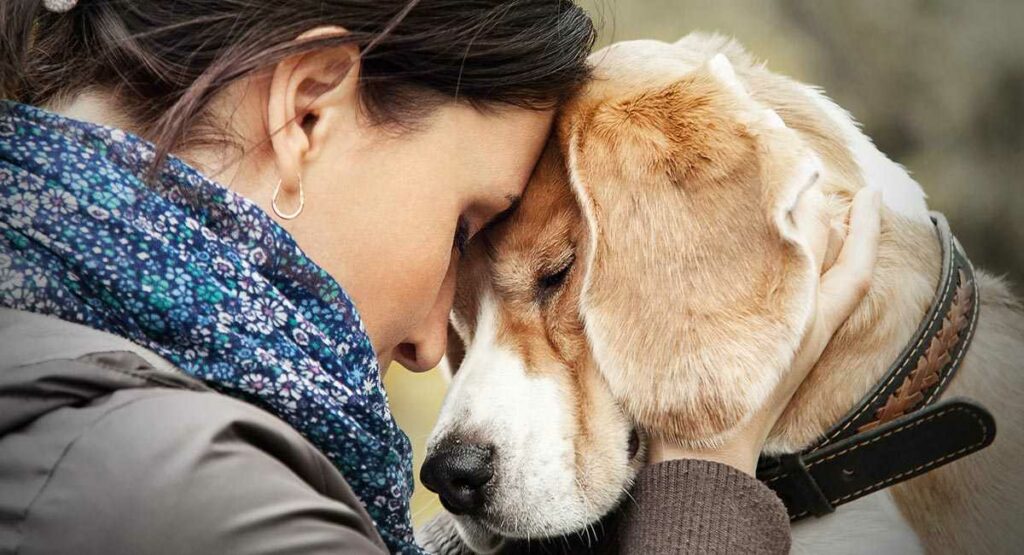Losing a pet can be one of the most difficult things a person goes through. Pets become like family members, and their loss leaves a gaping hole in our lives. It is normal to feel a range of emotions after losing a pet, including sadness, anger, loneliness, and guilt. Grief can be very overwhelming, and it is important to take care of yourself during this time. In this blog post, we will discuss ways to cope with the grief of losing a pet.
Contents
Relationship With Pets
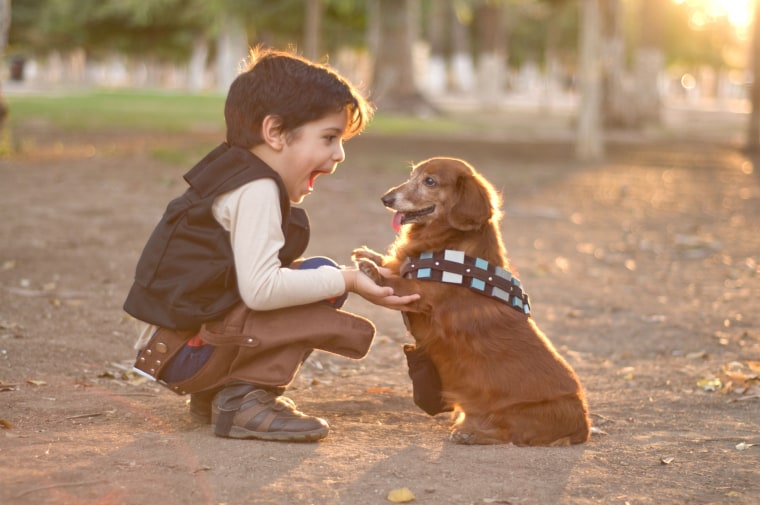 The relationship we have with our pets is unique. For many of us, they are members of the family and we share a bond that is unbreakable. Animals have become a source of comfort, companionship, and love in our lives. They offer us unconditional love and ask for nothing in return.
The relationship we have with our pets is unique. For many of us, they are members of the family and we share a bond that is unbreakable. Animals have become a source of comfort, companionship, and love in our lives. They offer us unconditional love and ask for nothing in return.
Truthfully, the bond that humans have with their pets these days is so strong. And, when that bond is broken, it causes intense grief. If that grief is not acknowledged or treated, it can lead to depression.
There are stages of grief that people go through when they lose a pet. Just like when we lose a human loved one, we experience shock and denial. We may even try to bargain with God or the universe in an attempt to bring our furry friend back.
Situations Where We Lose Pets?
There are many situations where we lose our beloved furry friends. Some situations are very uncertain that became so difficult to handle.
Common situations, such as:
- Abandoned,
- Runaways and strays
- Euthanasia
- Dangerous living conditions
- Moving to a new home
- Natural causes of death.
Other than this, losing a pet could also happen when they are being stolen.
Coping with the grief of losing a pet in any of these situations can be really tough. But, we’re not alone. If the feeling of this grief is too much to handle, seeking professional help is always a great option.
Stages Of Grief
We grief over a thing in different ways and at different speeds. There are five general stages of grief. That all of us often go through after the death of our beloved pet:
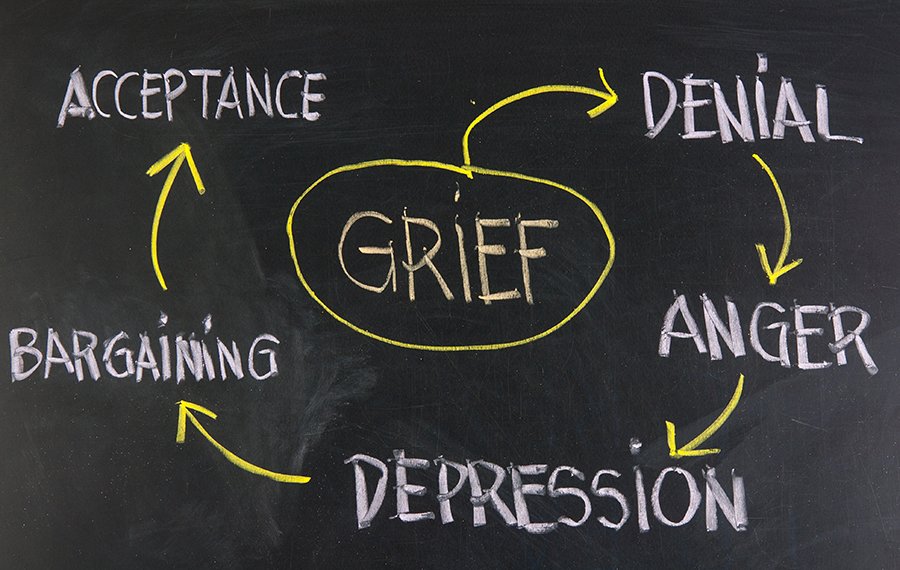
Five Stages Of Grief
- Denial – Feeling numb and disconnected from the world. Try to convince our self that our pet is still alive. This is a defense mechanism to protect ourselves from the pain of accepting the loss.
- Anger – Feel angry at anyone or anything that we believe is responsible for our pet’s death. This could include veterinarians, friends, family members, and even God.
- Bargaining – In this, we may offer prayers or promises in exchange for our pet’s life. We might also beg and plead with those around us to bring the pet back to us.
- Depression – Feeling of hopeless and helpless after the pet’s death. Might lose interest in activities that once enjoyed, have trouble sleeping, and eat less.
- Acceptance – The final stage is when we come to terms with our pet’s death. And, realize that there is nothing anyone can do to change.
Moving Forward With Grief
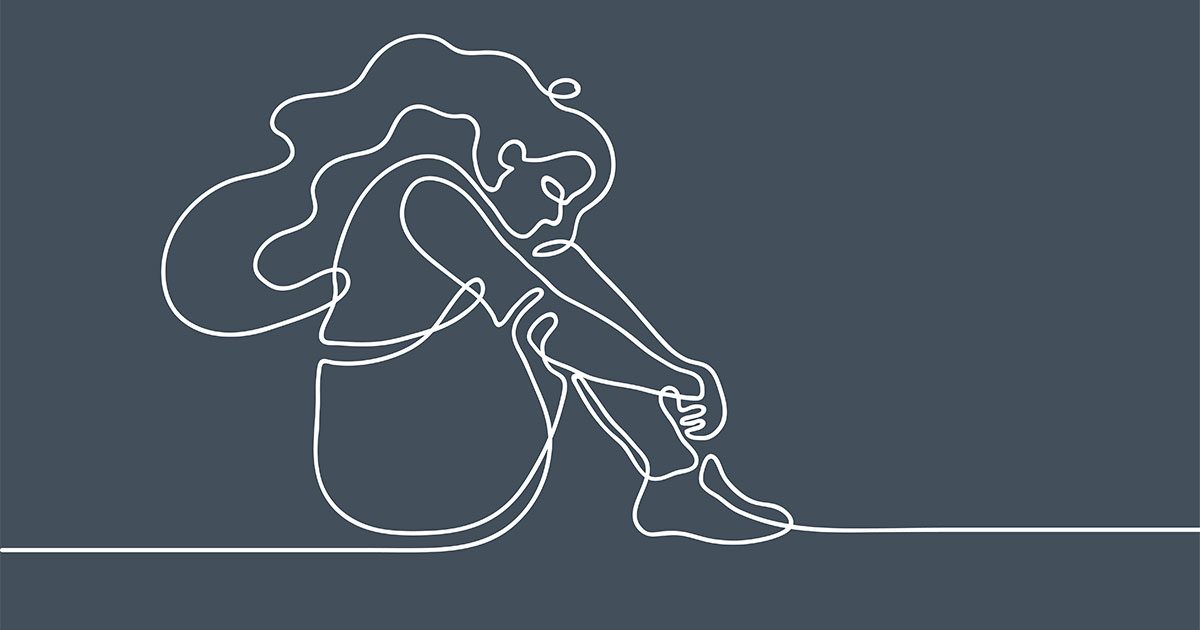 It takes courage to move through grief. By definition, grief is a deep sorrow felt when someone we love dies. The process of grieving is unique to each individual, and there is no “right” or “wrong” way to grieve.
It takes courage to move through grief. By definition, grief is a deep sorrow felt when someone we love dies. The process of grieving is unique to each individual, and there is no “right” or “wrong” way to grieve.
There are, however, healthy and unhealthy ways to cope with grief. It is important to find what works for us and do our best to avoid anything that might hinder our healing process.
Healthy Ways To Move Forward
- Allowing ourselves to feel all the emotions.
- Talking about our pet with family and friends.
- Sharing memories can be comforting.
- Writing down our thoughts and feelings in a journal.
- Participating in activities that make us feel connected to life.
- Seek professional help.
These healthy ways are just a few examples of how we can move forward with our grief. It is important to find what works for us and honor our own process. However, considering healthy ways to move forward is way more ahead.
Unhealthy Ways To Move Forward
- Avoid feeling like we have to “put on a brave face” for others.
- Using alcohol or drugs to numb the pain.
- Prolonging our grief by refusing to let go of our pet’s belongings.
- Refusing to have another pet.
- Engaging in risky behaviors.
- Becoming isolated from friends and family.
Talking about unhealthy ways, these are just a few examples of how we can move backward with our grief. Find what works against us and avoid anything that might hinder our healing process.
It is common for people to cope with the death of a pet in unhealthy ways. Unfortunately, escaping with our grief can actually prolong the healing process.
Coping With Grief Of Losing Pet
Pets are like family members. They provide us with companionship, love, and support when we need it most. So, when a pet dies, it’s only natural to feel grief and loss.
Five tips to cope with the grief of losing a pet:
- Talk about feelings: It’s okay to be sad, angry, or scared after your pet dies. Find someone who will listen to us and let talk about the feelings.
- Create a memorial: A memorial can be anything from planting a tree in your pet’s memory to writing a letter to them. Do something that will help in remembering the pet and the time spent together.
- Do something nice: Doing something nice for someone else can help us feel better. Volunteer at a shelter, make a food or toy drive, or knit hats for cancer patients. There are plenty of ways that can really brighten our day.
- Everyone grieves differently: Some people might seem like they aren’t grieving at all and some might cry constantly. Just because someone doesn’t act the way we think that should doesn’t mean they don’t care about the pet. Give them space.
- Go for therapies: If we’re feeling really struggling after the pet dies, consider talking to a therapist. They can help and work through our grief and start to feel better.
Grief is hard, but it’s okay to seek out help in order to cope with it. Losing a pet is never easy. But, running from our own feelings is only going to make it worse in the long run.
Find a way that suits us. Coping with the grief of losing a pet is always seems impossible at first glance. But we can get through it if we support each other.
When To Get New Pet?
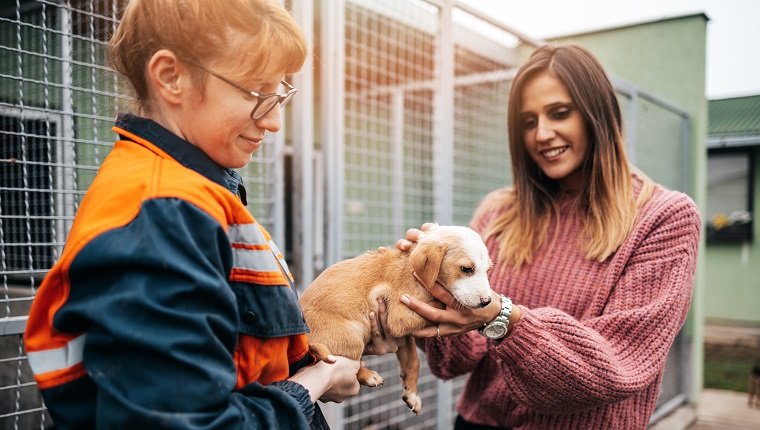 At first, the decision of when to get a new pet is difficult. Some people think that getting a new pet too soon will replace the one that was lost. Others may feel like they are betraying the memory of their deceased pet by moving on and getting another one.
At first, the decision of when to get a new pet is difficult. Some people think that getting a new pet too soon will replace the one that was lost. Others may feel like they are betraying the memory of their deceased pet by moving on and getting another one.
The best thing to do is to take our time and not rush into anything.
Honoring our pet memory by doing things we used to do together. Like going for walks or taking trips to the park. Eventually, we will reach a point where we are ready for a new companion animal in our life.
And, having a new pet is not a sign that we have forgotten about the pet we have lost. Rather, it means that we are ready to open up our heart again. And give another animal the love they deserve.
If we’re unsure of when the right time is. Consider talking to a professional who can help guide us through this difficult decision. In the end, there is no “right” answer as to when to get a new pet. It’s ultimately up to us and what feels best for us and for our family. Trusting our gut and do what feels right for US.
Conclusion
To conclude, the grief of losing a pet is a difficult thing to go through. However, there are ways to help cope with the pain. Talking to friends and family about the pet, looking at pictures, or writing about the pet can be beneficial.
There are also support groups available for those grieving the loss of a pet. Grief is a process and takes time to heal. Be patient with our self and allowing ourselves to grieve in whatever way is necessary.
A Word From Therapy Mantra
Your mental health — Your psychological, emotional, and social well-being — has an impact on every aspect of your life. Positive mental health essentially allows you to effectively deal with life’s everyday challenges.
At TherapyMantra, we have a team of therapists who provide affordable online therapy to assist you with issues such as depression, anxiety, stress, workplace Issues, addiction, relationship, OCD, LGBTQ, and PTSD. You can book a free therapy or download our free Android or i
